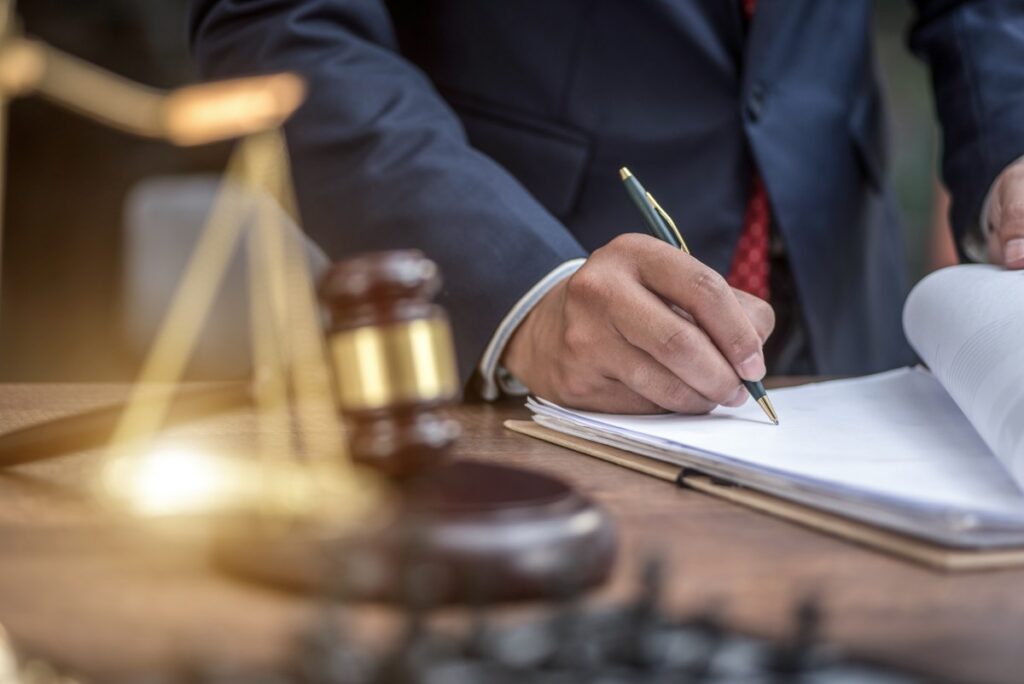Copyright claims against AI companies just got a potential boost.
A U.S. federal judge last week handed down a summary judgment in a case brought by tech conglomerate Thomson Reuters against legal tech firm Ross Intelligence. The judge found that Ross’ use of Reuters’ content to train its AI legal research platform infringed on Reuters’ intellectual property.
The outcome could have implications for the more than 39 copyright-related AI lawsuits currently working their way through U.S. courthouses. That said, it’s not necessarily a slam dunk for plaintiffs who allege that AI companies violated their IP rights.
All about the headnotes
Ross was accused of using headnotes — summaries of legal decisions — from Westlaw, Reuters’ legal research service, to train its AI. Ross marketed its AI as a tool to analyze documents and perform query-based searches across court filings.
Ross argued that its use of copyrighted headnotes was legally defensible because it was transformative, meaning it repurposed the headnotes to serve a markedly different function or market. In his summary judgment, Stephanos Bibas, the judge presiding over the case, didn’t find that argument particularly convincing.
Ross, Bibas said in his opinion, was repackaging Westlaw headnotes in a way that directly replicated Westlaw’s legal research service. The startup’s platform didn’t add new meaning, purpose, or commentary, Bibas determined — undermining Ross’ claim of transformative use.
In his decision, Bibas also cited Ross’ commercial motivations as a reason the startup’s defense missed the mark. Ross sought to profit from a product that competed directly with Westlaw, and without significant “recontextualization” of the IP-protected Westlaw material.
Shubha Ghosh, a Syracuse University professor who studies IP law, called it a “strong victory” for Thomson Reuters.
“The trial will proceed, [but] Thomson Reuters was awarded a summary judgment, a victory at this stage of the litigation,” Ghosh said. “The judge also affirmed that Ross wasn’t entitled to summary judgment on its defenses, such as fair use and merger. As a consequence, the case continues to trial with a strong victory for Thomson Reuters.”
Narrow in application
Already, at least one set of plaintiffs in another AI copyright case have asked a court to consider Bibas’ decision. But it’s not yet clear whether the precedent will sway other judges.
Bibas’ opinion made a point of distinguishing between “generative AI” and the AI that Ross was using, which didn’t generate content but merely spit back judicial opinions that were already written.
Generative AI, which is at the center of copyright lawsuits against companies such as OpenAI and Midjourney, is frequently trained on massive amounts of content from public sources around the web. When fed lots of examples, generative AI can generate speech, text, images, videos, music, and more.
Most companies developing generative AI argue that fair use doctrines shield their practice of scraping data and using it for training without compensating — or even crediting — the data’s owners. They argue that they’re entitled to use any publicly available content for training and that their models are in effect outputting transformative works.
But not every copyright holder agrees. Some point to the phenomenon known as regurgitation, where generative AI creates content closely resembling the work it was trained on.
Randy McCarthy, a U.S. patent attorney at the law firm Hall Estill, said Bibas’ focus on the “impacts upon the market for the original work” could be key to rights holders’ cases against generative AI developers. But he also cautioned that Bibas’ opinion is relatively narrow and that it may be overturned on appeal.
“One thing is clear, at least in this case: merely using copyrighted material as training data [for] an AI cannot be said to be fair use per se,” McCarthy told TechCrunch. “[But it’s] one battle in a larger war, and we’ll need to see more developments before we can extract from this the law pertaining to the use of copyrighted materials as AI training data.”
Another attorney TechCrunch spoke with, Mark Lezama, a litigation partner at Knobbe Martens focusing on patent disputes, thinks Bibas’ opinion could have wider implications. He’s of the view that the judge’s reasoning could extend to generative AI in its various forms.
“The court rejected a fair-use defense as a matter of law in part because Ross used [Thomson Reuters] headnotes to develop a competing legal research system,” he said. “Although the court hinted this might be different from a situation involving generative AI, it’s easy to see a news site arguing that copying its articles for training a generative AI is no different because the generative AI uses the copyrighted articles to compete with the news site for user attention.”
In other words, publishers and copyright owners duking it out with AI companies have slight reason to be optimistic after the decision — emphasis on slight.
